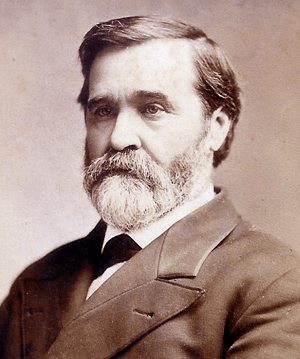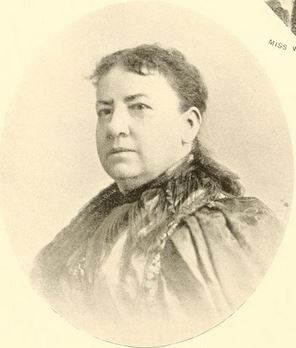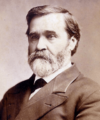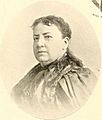William Ralls Morrison facts for kids
Quick facts for kids
William Ralls Morrison
|
|
|---|---|
 |
|
| Member of the United States House of Representatives for Illinois' 18th district |
|
| In office March 4, 1883 – March 3, 1887 |
|
| Preceded by | John R. Thomas |
| Succeeded by | Jehu Baker |
| Member of the United States House of Representatives for Illinois' 17th district |
|
| In office March 4, 1873 – March 3, 1883 |
|
| Preceded by | none |
| Succeeded by | Samuel W. Moulton |
| Member of the United States House of Representatives for Illinois' 12th district |
|
| In office March 4, 1863 – March 3, 1865 |
|
| Preceded by | none |
| Succeeded by | Jehu Baker |
| Member of the Illinois House of Representatives | |
| In office 1854-1860 1870-1871 |
|
| Personal details | |
| Born | September 14, 1824 Prairie du Long, Illinois |
| Died | September 29, 1909 (aged 85) |
| Nationality | |
| Political party | Democratic |
| Residence | Waterloo, Illinois |
| Alma mater | McKendree College |
| Occupation | Military officer |
| Profession | Politician, lawyer |
William Ralls Morrison (born September 14, 1824 – died September 29, 1909) was an important American politician from Illinois. He served as a member of the United States House of Representatives, which is part of the U.S. Congress. He was also a soldier and a lawyer.
Contents
Early Life and First Steps in Politics
William Ralls Morrison was born on a farm in Prairie du Long, near the town of Waterloo, Illinois. He went to local schools and then to McKendree College in Lebanon, Illinois.
After college, he fought in the war with Mexico. In 1849, he traveled to California hoping to find gold, but he returned to Illinois in 1851. He then studied law and became a lawyer in 1855, starting his practice in Waterloo, Illinois.
Morrison began his political career early. He worked as a clerk for the circuit court in Monroe County, Illinois, from 1852 to 1854. He was also elected to the Illinois House of Representatives, which is like the state's law-making body. He served there from 1854 to 1860, and again in 1870 and 1871. He even became the Speaker of the House in Illinois in 1859 and 1860. The Speaker is the leader of the House.
Personal Life and Family
William Morrison married Eleanor Horan, who he had known since they were children. She was 17 and he was 27 when they got married.
During the American Civil War, Morrison was injured while fighting for the Union Army. His wife, Eleanor, took care of him and helped him get better. When Congress was in session, the Morrisons lived at the Willard Hotel in Washington D.C.
Service in the Civil War
When the American Civil War began in 1861, William Morrison helped create a group of soldiers called the 49th Illinois Volunteer Infantry Regiment. He was made a colonel, which is a high rank in the army.
His regiment joined Ulysses S. Grant's army in Illinois. Morrison was put in charge of a larger group of soldiers called a brigade. His brigade helped Grant's army in the Battle of Fort Henry.
Morrison also fought in the Battle of Fort Donelson. During this battle, he was shot in the hip and fell off his horse. This injury was very serious, and he never returned to fighting. He officially left the army on December 13, 1863.
Time in Congress
Even while he was still serving in the army, Morrison was elected to the United States House of Representatives as a Democrat. He served in Congress from March 4, 1863, to March 3, 1865. He tried to get re-elected in 1864 and 1866 but did not win. After his time in the army, he went back to being a lawyer in Waterloo, Illinois.
Later, Morrison was elected to Congress again in 1873. He served for six more terms, until March 3, 1887. During this time, he was a very important member of the House.
Leading Important Committees
Morrison led several important committees in the House of Representatives:
- The United States House Committee on Ways and Means: This committee deals with taxes and how the government gets its money. He led this committee during the 44th, 48th, and 49th Congresses.
- The Committee on Public Lands: This committee handles laws about government-owned land.
- The Committee on Expenditures in the Department of the Treasury: This committee looked at how the Treasury Department spent its money.
Morrison was known for trying to change the country's tariff laws. Tariffs are taxes on goods imported from other countries. He wanted to lower these taxes, but it was a very difficult task. Many people, even some from his own party, disagreed with him. His ideas for tariff reform did not pass into law during his time.
Morrison's Personality in Politics
William Morrison was not a flashy speaker. He had a quiet voice, partly because of his war injury. He was also known for being a bit messy in his clothes and always putting his hands in his pockets. People sometimes joked that he looked like a "village lawyer."
However, despite his quiet manner, people in Congress respected him. They saw him as careful, thoughtful, and a very hard worker. He was also known for being honest and trustworthy. Even politicians from other parties, like the Republican Thaddeus Stevens, said that Morrison was a good and reliable person. He was seen as someone who truly believed in what he said and was not just trying to win popularity.
End of His Congressional Career
In 1885, Morrison tried to become a U.S. Senator for Illinois but was not successful. In 1886, he lost his re-election bid for the House of Representatives. This was a surprise to many, as he had been very popular in his district for a long time.
One reason for his defeat was that the boundaries of his congressional district were changed by Republicans to make it harder for him to win. Also, powerful groups like the iron and steel industry, who wanted high tariffs, spent a lot of money against him. The Knights of Labor, a workers' organization, also opposed him because they supported tariffs.
Morrison was also a delegate to several Democratic National Conventions, where his party chose its candidate for president. He attended these conventions in 1856, 1868, 1884, and 1888. In 1884, he was even considered a "favorite son" candidate for president by the Illinois delegation.
Later Years and Legacy
After leaving Congress, President Grover Cleveland appointed William Morrison to the Interstate Commerce Commission in 1887. This commission was created to regulate railroads and make sure they treated everyone fairly. He was reappointed in 1892 and served until the end of 1897. He was even the chairman of the commission for several years.
After his public service, he went back to practicing law in Waterloo, Illinois. William Ralls Morrison passed away in Waterloo on September 29, 1909, at the age of 85. He was buried in the Waterloo Cemetery.
Images for kids
 | Aaron Henry |
 | T. R. M. Howard |
 | Jesse Jackson |




